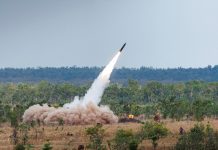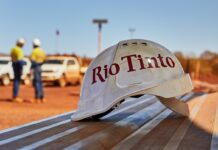
Weld Australia is urging the Government ‘to amend the necessary regulations’ to mandate compliance to Australian Standards for steel fabricated both in Australia or overseas – or wear the consequential loss of life.
The organisation argues that the lack of adequate legislature that mandates compliance to Australian Standards for the manufacture, fabrication and erection of steel, paves the way for procurement decisions to focus on the lowest common denominator: cost.
Weld Australia CEO Jeoff Crittenden said the complete lack of regulation is putting Australian lives at risk as there is no way to guarantee that structures and components not fabricated in accordance to Australian Standards will not fail.
“It is Weld Australia’s position that it does not matter where our steel infrastructure is made, as long as the fabricator is certified to AS/NZS ISO 3834, and the steel is manufactured and welded to all specified Australian or international standards,” Mr Crittenden continued.
“Our rationale is, that given a level playing field, Australian welding is internationally price competitive and can deliver world class quality.
“We have developed this view after acting as advising welding engineers on many large-scale projects fabricated in Australia and overseas. However, it appears that this is not immediately obvious to those charged with procuring multi-million-dollar projects.”
In a striking example of what poor quality welding can do to a business, Orica was forced to shut down its billion dollar-plus Pilbara explosives plant in Yara due to a ‘terminal cancer of leaks’ caused by faulty welding done in China.
Orica CEO Alberto Calderon told The West Australian that the defect had forced the business to mark down the value of its 45% share of the plant by a whopping $155 million in April 2019, adding that the delay is still costing the company ‘millions of dollars every month’.
“Weld Australia congratulates Mr Calderon for his openness and honesty in raising the issue of weld quality. In most cases, the large multinationals and governments who suffer the same fate do everything to cover up their problems,” said Crittenden.
“I recently met with a senior engineer from a large mining company who had procured substantial amounts of fabricated steel infrastructure from offshore suppliers during the mining boom. He reported that their maintenance bills were off the scale and that production was limited by the poor quality of the welding.”
“In line with Mr Calderon’s point on supervision, the senior engineer explained that the mining company had spent so much on production oversite and fault rectification that there was almost no cost benefit to offshoring the work. In fact, once you included the maintenance costs, it was more expensive than locally procured fabricated steel. And yet, that same mining company has just announced that 20,000 tonnes of structural steel work is to be procured from China for a new mine.”
“It would be easy to cite hundreds of similar examples from mining, oil and gas, civil works, rail car and infrastructure procurement. It’s certainly no secret, and to be fair, not limited to Chinese fabricators. So why is the same mistake being repeated time after time?” Mr Crittenden concluded.



















